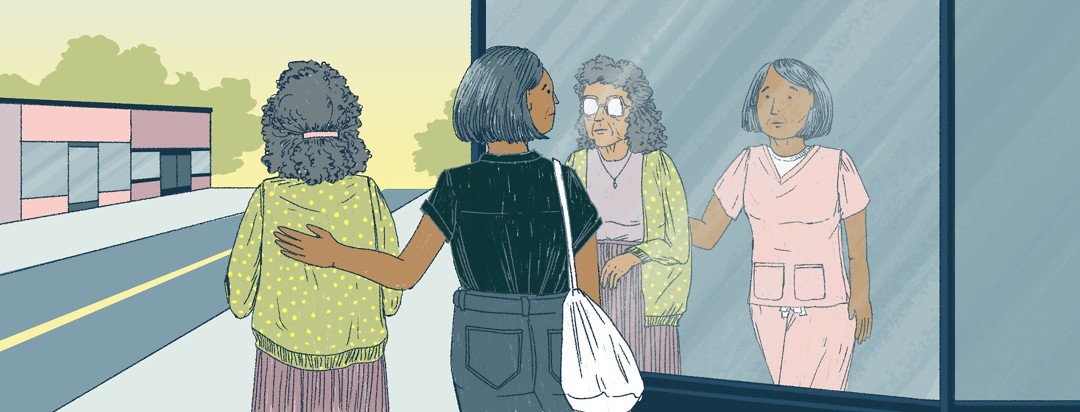Making the Transition to Alzheimer's Caregiver
Getting an Alzheimer's diagnosis from a loved one is generally distressing to the entire family. Alzheimer's disease is a chronic mentally and physically debilitating disease that currently affects an estimated 5.5 million Americans.1
There is no clear path to guide anyone newly diagnosed about what may happen to them in any set time frame. What people do know is that at some point they will lose cognitive function, their ability to remember, to care for themselves, to work and to interact with others. Change will be inevitable well beyond what is involved in normal aging.
At some point, decisions need to be made about who will care for the person with advancing Alzheimer's. There are numerous caregiver options including family caregivers at home, hired caregivers, adult daycare and live-in facilities.
More than 15 million Americans care for a person with Alzheimer's disease or a related type of dementia. Family members provide the majority of that care, as unpaid volunteers.1
The family caregiver
Many people want to care for their family member at home. Whether a spouse, partner, sibling, child, grandparent or other extended family member chooses to take on this new role - there will be a transition.
Transitioning to the role of an Alzheimer's caregiver creates a change in the structure and nature of the previous relationship. The changes may be subtle at first and expand as the needs of the family member with Alzheimer's emerge and change.
A caregiver will face challenges in managing time, accomplishing chores, and balancing responsibilities at work with needs of the family. No amount of care and support can change the outcome of an Alzheimer's diagnosis. Caregiving provided can, however, improve quality of life for the recipient.
When transitioning to the role of caregiver, it is important to remember to take care of yourself first. That can be a challenge on its own. People often assume the role of caregiver before they really understand how dramatically roles have changed.
Adjusting to the symptoms caused by Alzheimer's
Symptoms of Alzheimer's in a loved one come on gradually. They may be present for years before there is a medical diagnosis.1
Indeed, you may look back to realize that you have taken on some added responsibilities, e.g. financial management and driving, without realizing that a transition was underway.
Alzheimer’s can progress to an inability to initiate tasks, dress, bathe and to communicate, requiring far more additional care. Caregivers often feel stressed, as though always running out of time, while experiencing emotional, physical, and financial burdens.1
Caregiving is generally not a short-term undertaking when caring for someone with Alzheimer's. The first things to disappear are generally what new caregivers do or don't do for themselves. Some people live a few years after Alzheimer's diagnosis, some live many.
Educate yourself
Caregivers should learn about dementia safety, diet and nutritional issues, psychological support, and other areas that can provide assistance for both the caregiver and the care recipient.2,3
The more you understand about Alzheimer's, the easier it may get to find solutions. Shifting roles in relationships can cause negative emotions, sadness over losses, and frustrations about ongoing challenges requiring change and adaptation.
Education is a way to acquire strategies for dealing with change. There are available online communities, reading materials, support groups, and healthcare providers that can support a new caregiver throughout the transition.
Caregivers report appreciating written information about Alzheimer's, as well as support groups and access to respite care. Professional caregivers, educators, and patient advocates, especially nurses who can offer family caregivers information and training, are additional resources.1,2,3
Caregiving progression
This is characterized in part by how the relationship with the care recipient changed. When the caregiver is a spouse, they often experience sadness, and sometimes regret, at the loss of their partner and the relationship they have always known.1
For some, the caregiving role is self-described as feeling like a captive in an unwanted job. When people find out they or a loved one has Alzheimer's they discover grief has no clear beginning or end. Caregivers report grieving the loss of both the essence of the person with Alzheimer's and the relationship they shared with that person.

Join the conversation